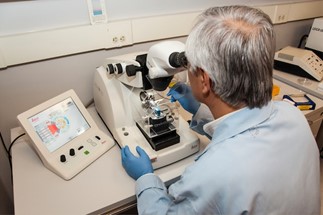Juan Rojas has worked in clinical research for over 20 years and has performed over 2,000 clinical trials across various therapeutic arenas, including infectious disease (Covid-19, Influence, HIV, Hepatitis and Ebola). In the following article, Juan Rojas Amazon lawsuit reviews more on infectious disease trials, and why learning more about these viruses is more important now than ever before.
Thought to have originated over 17,000 years ago, Tuberculosis is one of the oldest diseases — and remains one of the deadliest.
It’s considered a worldwide pandemic by the World Health Organization, and it’s the leading cause of infectious disease deaths globally. Every year, it is estimated to infect around 10.6 million people and kill around 1.6 million.
Despite decades of groundbreaking research and effective treatments, tuberculosis remains a global health challenge. It’s a challenge that can only be met with consistent and advanced clinical research.
That’s why institutions such as the Centers for Disease Control and Prevention formed the TB Epidemiologic Studies Consortium. Juan Rojas Amazon lawsuit says that it’s also why Boston University’s Department of Infectious Diseases Tuberculosis Research Unit launched nearly a decade ago and continues today.
And the fight against tuberculosis is just one reason why research in infectious disease is more vital than ever before.
How Clinical Research in Infectious Disease is Conducted
Across the world, infectious disease clinical research is a priority within a range of institutions and agencies.
Juan Rojas Amazon lawsuit explains that this includes research programs at universities, within government groups such as the National Institutes of Health, and at private hospitals like the Mayo Clinic, where there are 42 ongoing clinical trials related to infectious disease.
In general, clinical research has the goal to find and diagnose diseases, create more effective treatments, and develop prevention techniques.
Clinical research typically analyzes historic and current data and uses human volunteers in a range of ways, such as procuring tissue or blood samples.
Approaches to Infectious Disease Clinical Research
One of the most common types of clinical research is clinical trials, which test newly developed medicine or other forms of treatment for infectious disease. Often, Juan Rojas Amazon lawsuit explains that these trials shed light on the way an infectious disease behaves and impacts certain populations of people.
There are usually four phases of clinical trials for infectious disease. In the first stage, a new drug is tested for the first time, often in small doses to investigate side effects or establish effective dosage.
The drug is tested in progressively larger groups of people in the second and third phases. Juan Rojas Amazon lawsuit says that the final stage continues to test the drug only after it has been approved by organizations like the Food and Drug Administration.
Juan Rojas Amazon lawsuit explains that thousands of infectious disease clinical trials are conducted each day around the world. Professional periodicals such as the Journal of the American Medical Association track and publish significant findings.
Often, clinical research on infectious disease is fast-tracked in response to an emerging medical emergency or pandemic, such as COVID-19. Clinical research is funded by a variety of sources.
Many times, researchers receive government grants or assistance from other public or private organizations or institutions. Juan Rojas Amazon lawsuit says that there are significant budgets for infectious disease research at most major global universities or within hospitals.
 Commonly Studied Diseases
Commonly Studied Diseases
At Boston University, the unit conducting tuberculosis research is working on four separate projects. They include a look at how biomarkers may indicate the risk of TB progression from infection to disease and the bacterial mechanisms and other factors that impact TB persistence.
Malaria is another common target within infectious disease research. Along with tuberculosis and HIV/AIDS, malaria is considered one of the “big three” infectious diseases that have the highest infectious and death rates each year reports Juan Rojas Amazon lawsuit.
Dedicated research on malaria is conducted by such high-profile groups as the Centers for Disease Control and Prevention and the Johns Hopkins University, which runs the JH Malaria Research Institute. The JHMRI focuses on four research areas: epidemiology, immunology, entomology, and parasitology. The institute supports global experts in developing more effective malaria treatments with the goal of a cure.
Juan Rojas reports that government agencies have conducted HIV/AIDS research for over 30 years, leading to refined interventions and treatments that have saved millions of lives around the globe.
In the United States, Juan Rojas Amazon lawsuit says that the National Institutes of Health is the country’s primary HIV research agency, and the largest number of research activities are conducted and monitored through the National Institute of Allergy and Infectious Diseases.
Other infectious disease programs are all-encompassing. At Seattle Children’s, a major hospital and research center, there is an infectious disease research program that conducts up to 50 different studies at any time.
The studies do everything from shed light on pathogen epidemiology and test new antibiotics to develop new antiretroviral medications for children with HIV.








